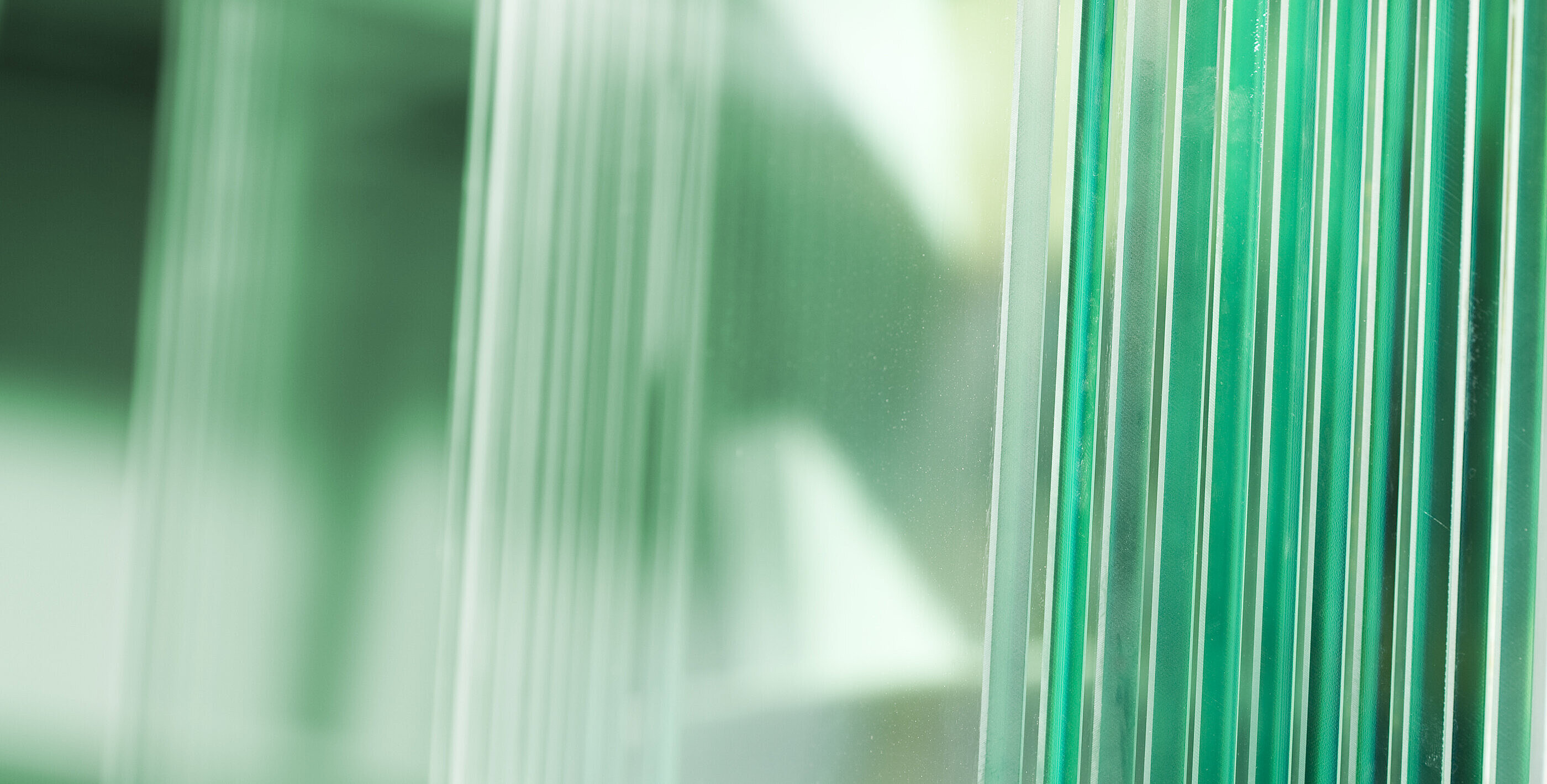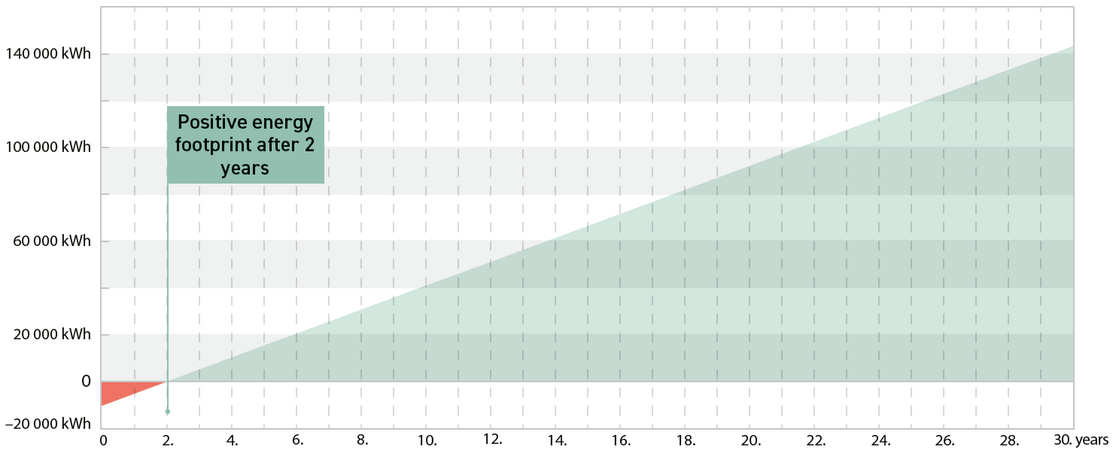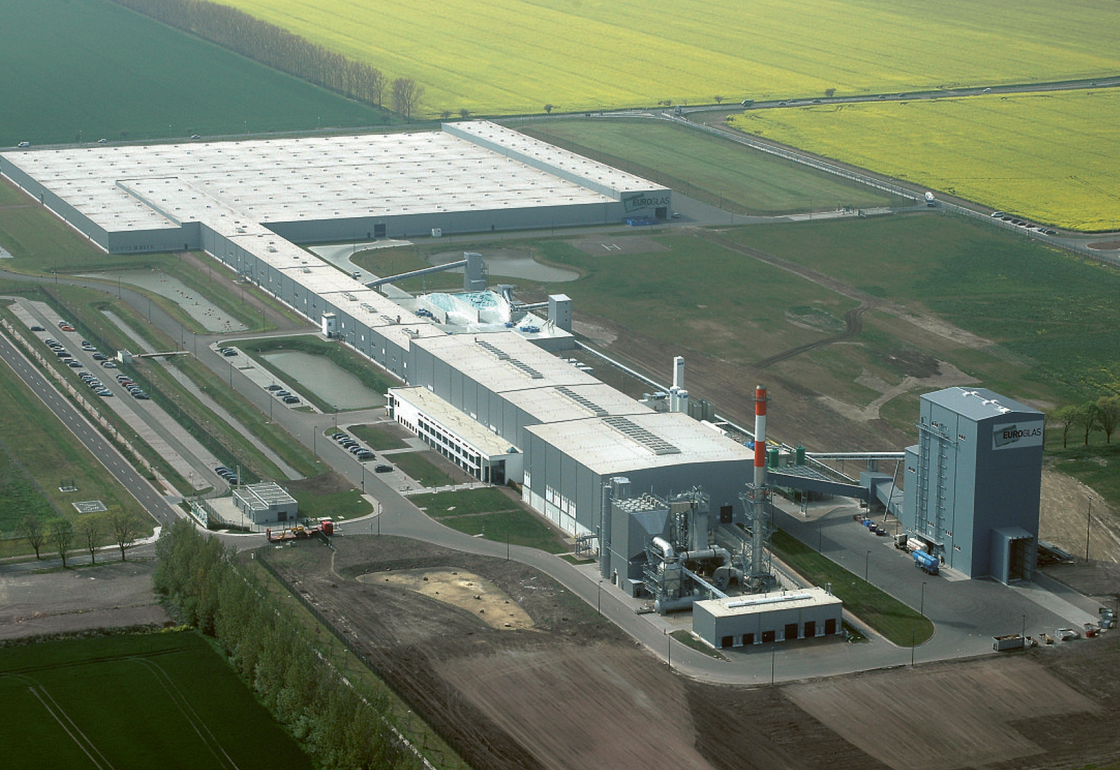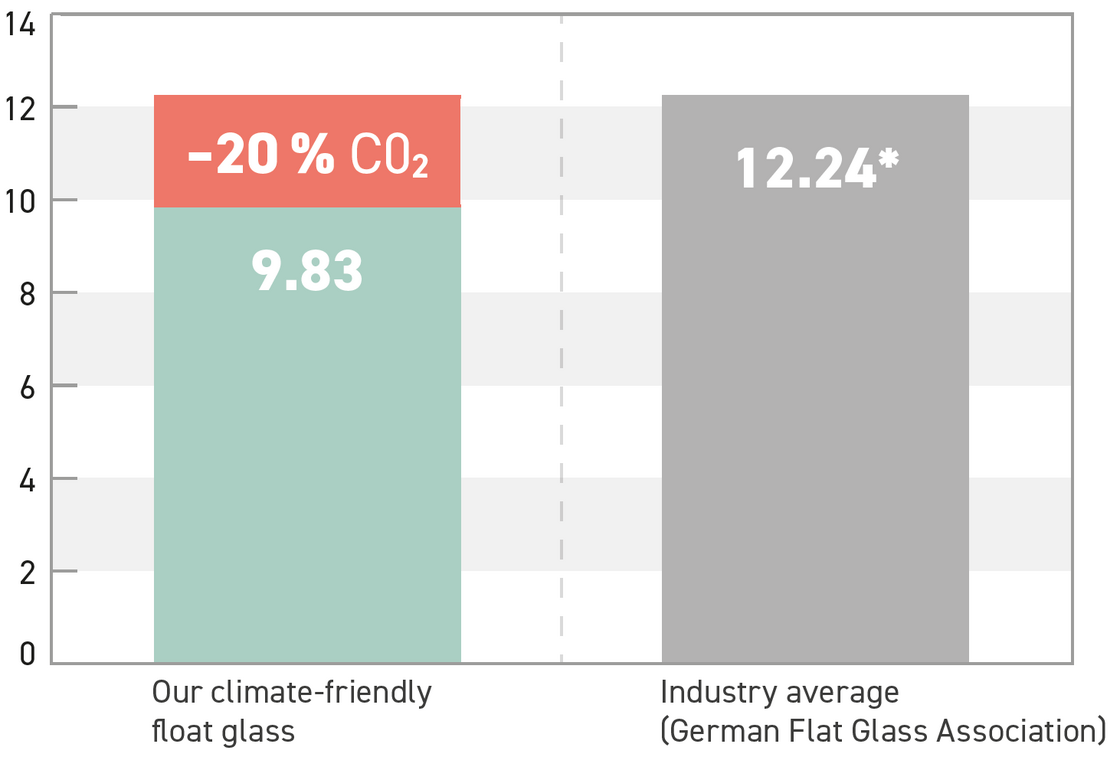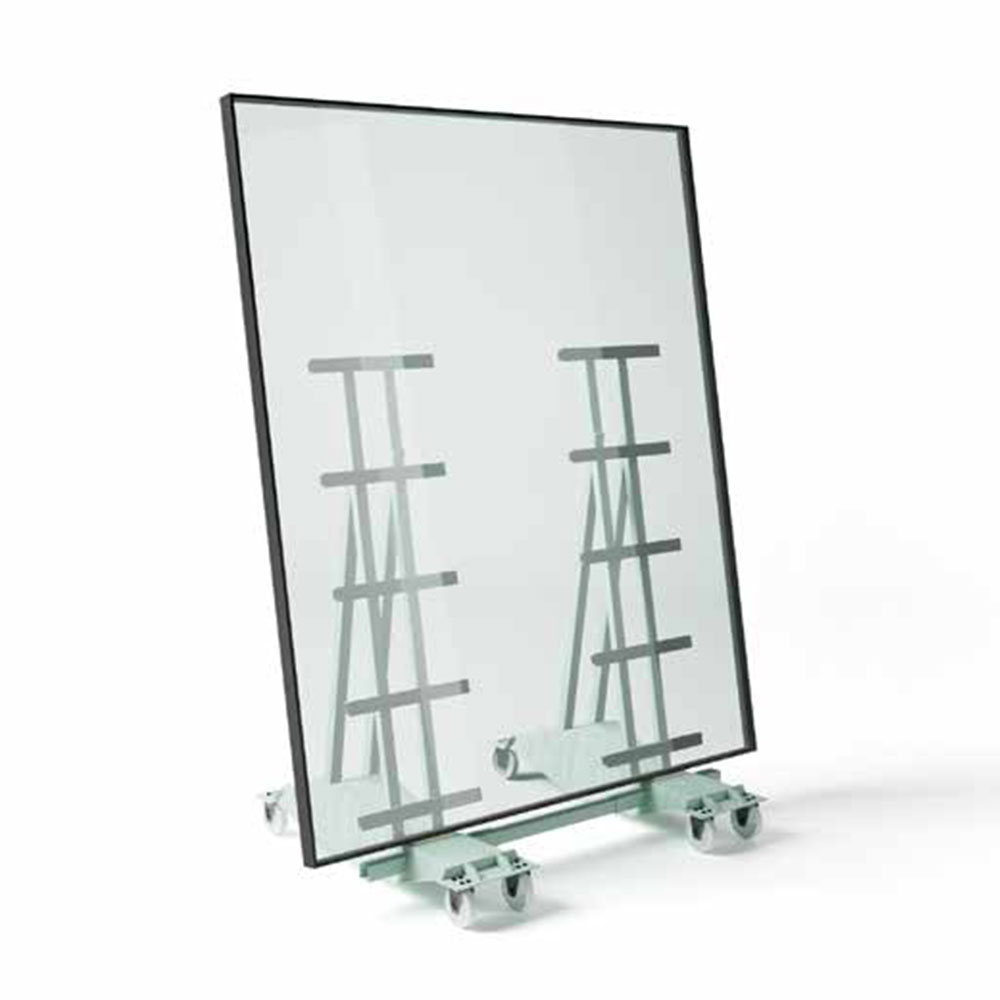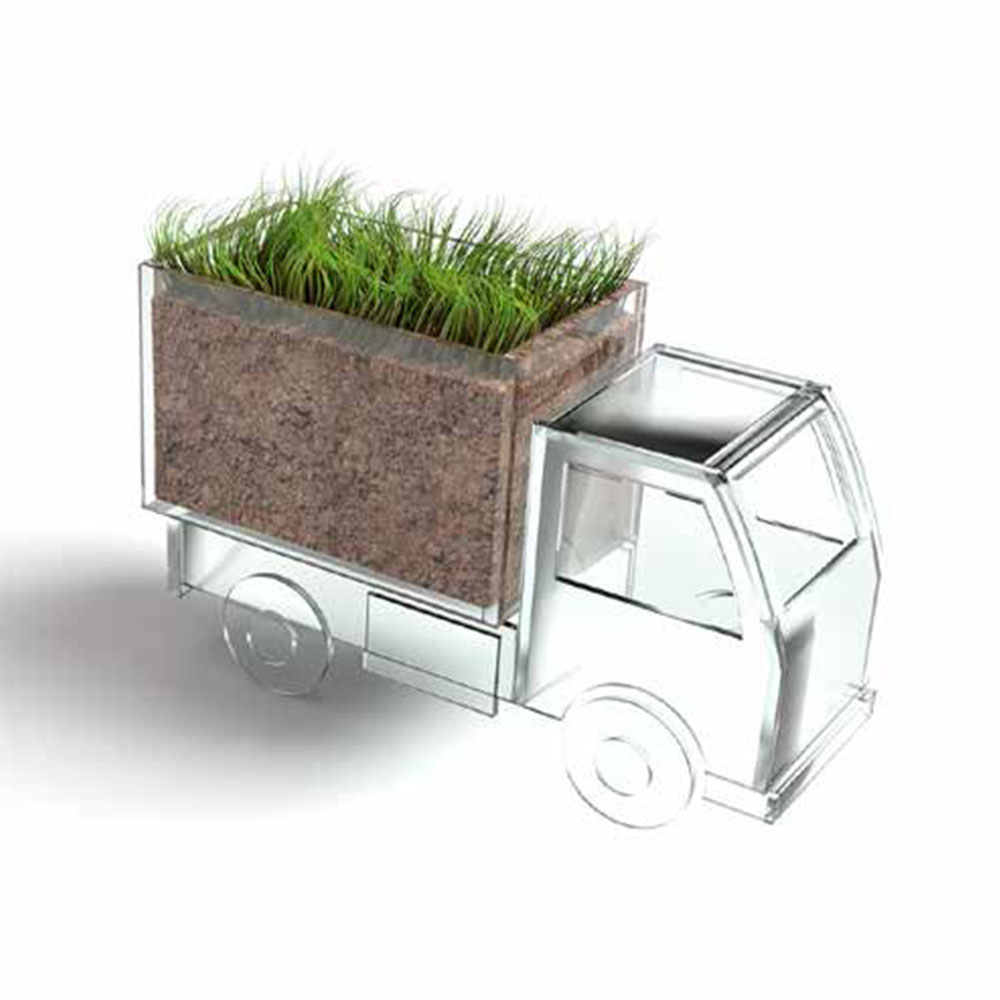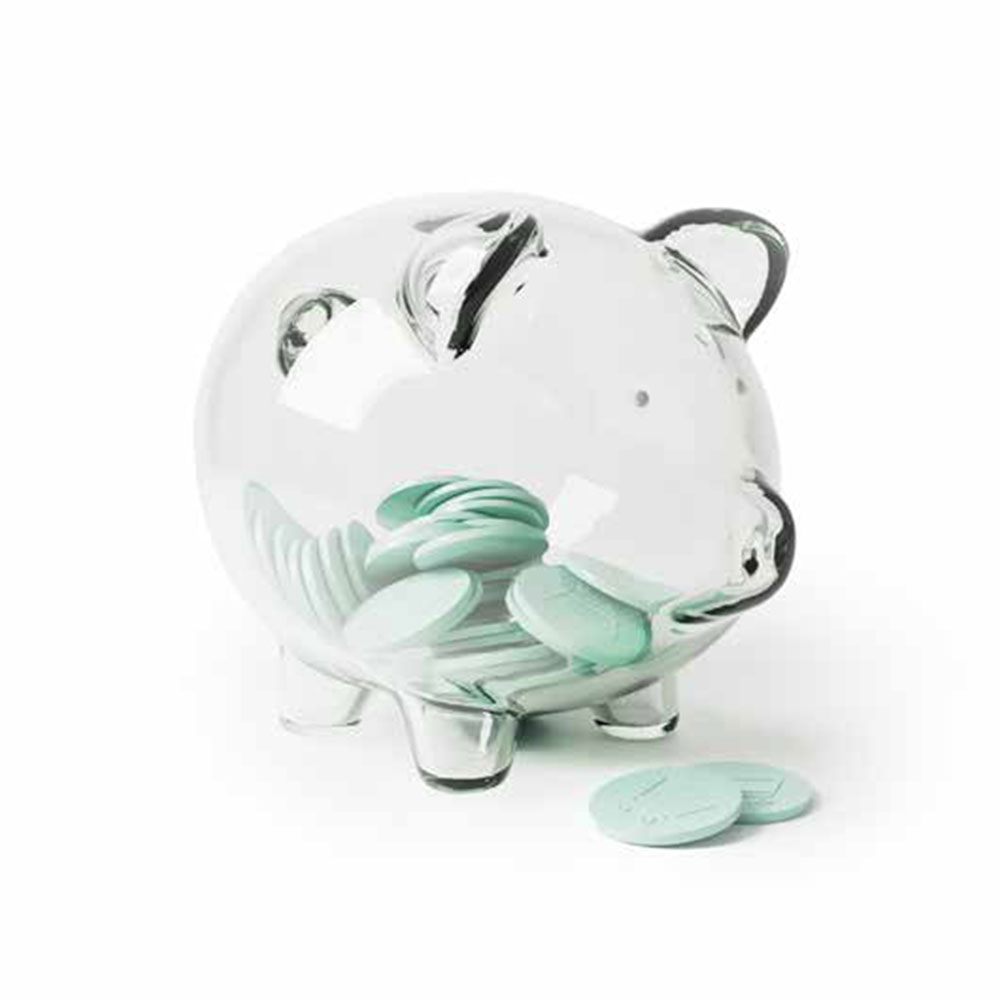Green for Generations
We are Green for Generations
Euroglas is part of the Swiss Glas Trösch Group - a family-run business. Sustainable thinking and reliability have been among our guiding principles for generations. This also applies to the concept of sustainability.
Our goal is clear: we want to reconcile social benefits, the environment and the economy in the best way possible thereby also protecting future generations. This is also what our motto 'Green for Generations' represents.
Our growth may be dynamic, but our attitude to sustainability is consistent.
We have chosen to focus on four core areas:
- We develop glass that reduces the energy consumption of buildings
- We produce our glass using ever less energy over time
- We do everything in our power to maintain a clean environment and to protect it
- We support our customers in constructing sustainable buildings
Innovations are the driving force behind our success. We acknowledge that we can only achieve this with motivated employees.
Our action plan for carbon neutrality
2022
Our Scope
Current status
Scope 1
Direct emissions
Scope 2
Power consumption
Scope 3
Indirect emissions
START OF MEASURES
Green electricity
Converting electricity to renewable energy sources
FLOAT PROCESS
New technologies and use of electroboosting
Increase cullet percentage
Increasing cullet percentage at all float plants
Convert truck fleet
Converting trucks to alternative drives
Replace heating system
Replacing gas and oil heating systems with low-CO2 technologies
Replace company vehicles
Converting cars to alternative drives
Efficiency
Energy process optimisation at the production plants
2030
- 30%
Reduction scope 1+2
2050
« We intend to achieve net zero by 2050 »
We focus on sustainable products
We’ve been passionate about glass. Not only is it timeless in its beauty, it’s also incredibly eco-friendly. After all, glass is a natural product and its raw materials, such as quartz sand, soda and dolomite, are abundant resources.
Manufacturing insulating glass requires a lot of energy. However, once installed in a building, its energy-saving potential is so high that it quickly pays for itself. Based on the average lifespan of around 30 years, the energy balance of our window and façade glass is clearly positive.
Our glass not only reduces energy consumption during the colder months of the year. At a time when hot spells are becoming more frequent, another important feature is its ability to provide heat protection in the summer. In this way, our solar protection glass ensures comfort indoors even when outside temperatures are high. It's also able to reduce, sometimes even completely eliminate the need for air conditioning systems.
Our insulating glass saves huge amounts of energy – and therefore also reduces carbon emissions.
Based on an average life of around 30 years, the total energy footprint of our window and façade glass is significantly positive.
Saving with 30 m2 triple-glazed insulating glass: Ug value 0.6 W/m2K
Heating oil per year
570l
Heating oil after 30 years
17100l
kWh per year
5100kWh
kWh after 30 years
153000kWh
CO2 per year
1500kg
CO2 after 30 years
45000kg
Our products quickly start saving energy
We produce efficiently
Manufacturing flat glass is an energy-intensive process. That’s why we’ve been working to make it as efficient as possible for decades now. In our float glass plants, we use local raw materials to minimise hauling distances. Thanks to our patented system for reusing glass fragments, we also reduce the need for raw materials.
Around a quarter of the electricity used by our float glass plants is recovered energy
For all other types of energy, we opt for the most environmentally friendly combination possible to minimise our impact on the environment. We have also designed our melting furnaces in-house which has helped us ensure that our float glass factories are amongst the most efficient and environmentally friendly in the world.
We are audited by independent institutes
We are certified according to international standards ISO 14001 (environmental management) or ISO 50001 (energy management) - in line with our motto « Green for Generations ».
At Euroglas, the focus is on reducing CO2 emissions for the entire product range. According to current calculations, the standard glass we produce performs significantly better than the industry average.
The advantages of our climate-friendly float glass
The lower the CO2 emissions, the better for the environment. Our entire range is produced in a climate-friendly way, resulting in a correspondingly high global effect. And there are other points that make float glass from Euroglas a good choice.
“Our climate-friendly float glass makes a significant contribution to reducing CO2 emissions and is suitable for all building typologies.”
Local shards
We fully utilise all available glass shards for our standard float glass in order to reduce the use of raw materials and process energy as much as possible. We do not need to transport broken glass between locations.
Eco-friendly logistics
Because we produce climatefriendly basic glass at all our production sites, our warehousing costs are low. In addition, the transport routes for the glass produced are reduced to the bare minimum.
We’re your partner for green buildings
Certification systems have been developed worldwide that allow for the sustainability of buildings to be ssessed and compared in order to promote climate-friendly construction.
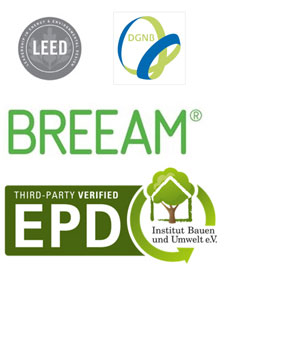
DGNB, LEED, BREEAM and much more...
Whether Germany's Sustainable Building Certificate (Gütesiegel Nachhaltiges Bauen), the US's LEED or the oldest and most well-known of them all - the UK's BREEAM certificate, each system has its own set of criteria with environmental, economic and social considerations, which are weighted differently and relate back to national regulations.
We help architects, planners and building owners achieve the best result for their preferred certification system with our glass solutions.
The individual footprint of construction products plays a major role in all systems. Environmental Product Declarations (EPD), which we provide for our basic glass options, form the basis for calculating ecological sustainability.
We protect our environment
Specifically, this means that we do as much as we can to avoid waste in all areas and recycle it wherever we can.
For us, environmental protection also means keeping emissions to an absolute minimum. Electric filters allow us to reduce the emissions of particulate matter and sulphur dioxide from our float glass plants, keeping them below the statutory requirements. In addition, we have been purifying production waste gases with the help of DeNOx systems for years.
We’re also constantly improving our ecological footprint in logistics. Our own truck fleet only uses vehicles with economical engines and the latest exhaust filters. Since 2021, we have also been switching to tractors that run on environmentally friendly fuels.
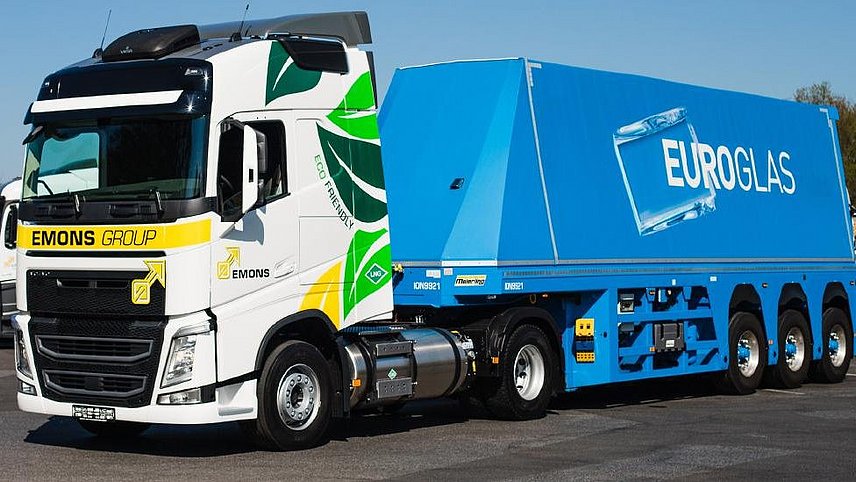
More on the topic of sustainability
![[Translate to Englisch:]](/fileadmin/user_upload/EPDI.png)
We make climate-friendly float glass the standard
